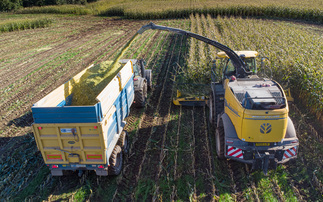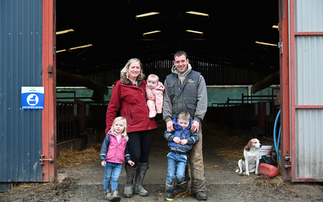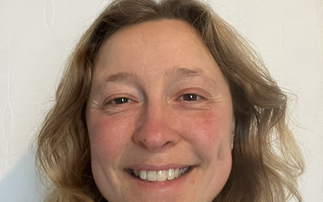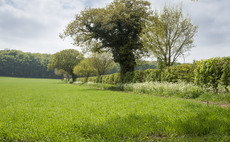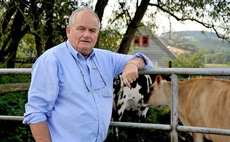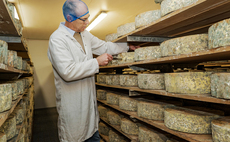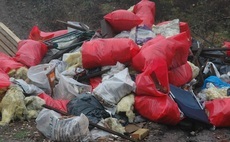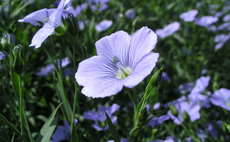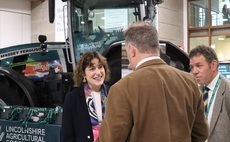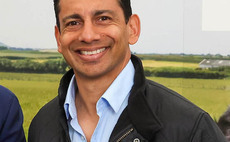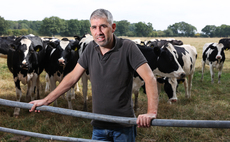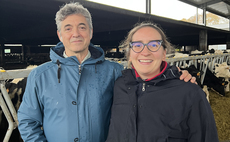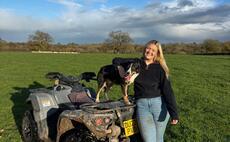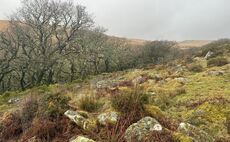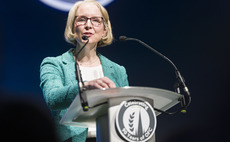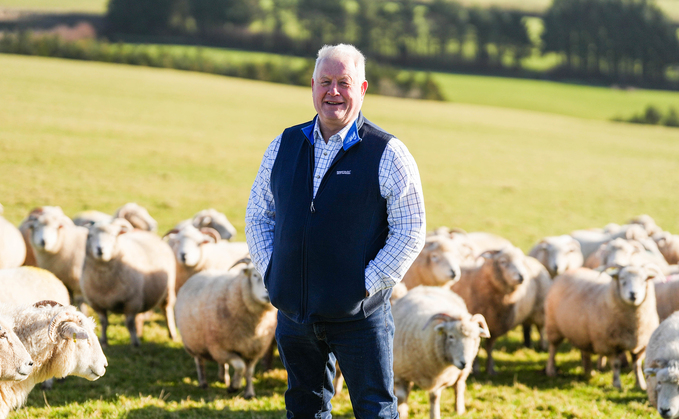
Peter Delbridge
Introducing the conference, NSA chair and Devon farmer Peter Delbridge said the industry was at a crossroads with no clear direction as to where it would go. He questioned why confidence among farmers was so low, in spite of high prices for sheep.
He said there was much that farmers could do to shape their own destiny by focusing on what they could control within their own businesses, adding there were many success stories demonstrating that sheep farmers could do much more than survive and could thrive, despite the challenges faced.
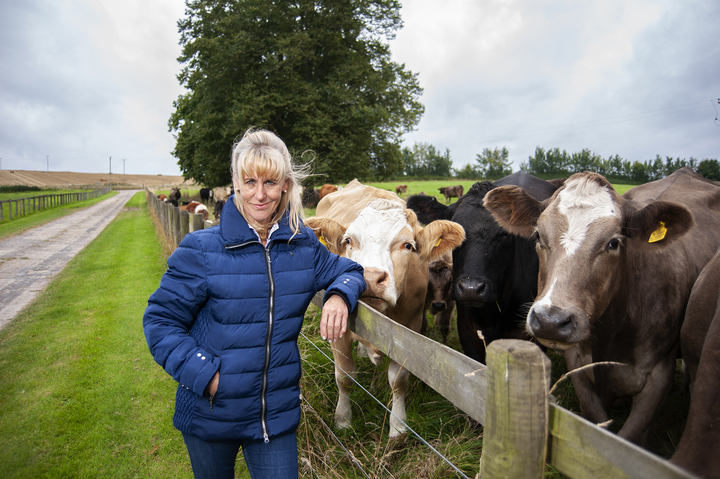
This was backed up by one of the speakers, Grace Kempthorne, a farm business adviser who presented results from the 2024 Farm Business Survey. She emphasised that it was not the actual farm that defined a farmer but the farmer themself, as 74% of the success of farm performance could be attributed to farmer action rather than the farm they were managing.
Roots to Resilience programme
A session led by Emily Symonds, of AHDB, featured Northumberland farmers Matt Jordan and Rich Oglesby, who had both taken part in AHDB's Roots to Resilience programme.
They highlighted some key points they had taken from the programme:
- Ask yourself what you really want to do within the business
- Identify which enterprises are performing well and which are not
- Profitability matters, but so does time off and long-term business goals
- Time in the office can be valuable
- Set time aside to discuss projections
- Focus on what leaves the most margin not what the market pays a premium for
- Make conscious decisions – not by default
Farm Profitability Review
Speaking about her yet to be published Farm Profitability Review, Baroness Minette Batters said that one of the key problems the industry faced was that the Government did not truly recognise the value of agriculture.
She said: "Time and again officials have said farming is only 0.6% of GDP and I think this is at the heart of a lot of the problems we face.
READ MORE: New initiative to tackle sheep dip disposal
"So, my first recommendation is saying to Defra and the Office for National Statistics [ONS], which calibrates the value of GDP, is that you have to recalculate our GDP by measuring primary production and primary and secondary processes.
"That is the way New Zealand measures their value of GDP. Ireland measures everything within its rural economy, including horse racing. This is a really important point to get across because in New Zealand farming is 10% of GDP, but 80% of that comes from outside farming, but if you are 10% of GDP you are valued.
"The ONS have done quite a bit of work on recreation and farm tourism, both worth over a billion pounds each, but we have never put it all together.
"So, I want to see a complete recalculation of the value of agriculture in this country and then we can build from there."
Baroness Batters said that after she was asked to do the review there was a lot of cynicism about farming profitability and why we should have it.
She added: "I can absolutely say that it has allowed conversations to that we would not normally have had and that is fundamental."
Another issue raised by Baroness Batters was agriculture being represented in discussions about trade deals.
READ MORE: UK veterinary sales of antibiotics fall to new low
She said: "We have never taken one single farmer on a trade delegation and this needs to change. Defra needs to become an economic department so it can represent farmers because the Department for Business and Trade is not about farming. We need to be working in partnership and to learn from Australia, New Zealand, the US and Ireland.
"My acronym is FARM – food, agriculture, rural matters – because I did not want the review to be just about food production.
" I hope it will be published before Christmas and really hope there will be an absolute reset of our relationship with Government and not just this Government.
"What I am trying to do is start a Farming Road Map for the next 25 years in the best possible way."
Antimicrobial stewardship roadmap
Dr Fiona Lovatt, independent sheep consultant and chair of the Sheep Antibiotic Guardian Group, urged delegates to sign up to the Antimicrobial Stewardship Roadmap.
She said: "We absolutely need access to medicines that work but, unfortunately, we know there are medicines we had that do not work anymore.
"But at the other end of our farm businesses we need to have a market – we need good quality British lamb in our butchers and supermarkets and we need to have a healthy export trade because that is what keeps demand and prices up."
Dr Lovatt added that while many sheep farmers were careful and responsible users of antibiotics, despite considerable efforts over the past eight years, the sheep industry had failed to adequately deliver evidence and data to demonstrate this.
READ MORE: Popularity of Zwartbles sheep continues to grow
"This could have a drastic effect on our export markets. The recently published Veterinary Antimicrobial Sales and Surveillance report on antimicrobial use across all livestock sectors shows that more than 90% of the pig, poultry, fish and gamebird industries could show what their antibiotic use is. For dairy cows it is about 30% but for the sheep industry there is very little data, which is quite embarrassing.
"It is incredibly important that we collect data, which is why this roadmap has been launched. We need to find out the best way to do this – what works for vets and what works at farm level. By filling in the survey we aim to find out how we can do this better so we can demonstrate that we are doing a good job."
For more information go to: https://knowledge.rcvs.org.uk/amr/uk-ruminant-antibiotic-stewardship-roadmap








